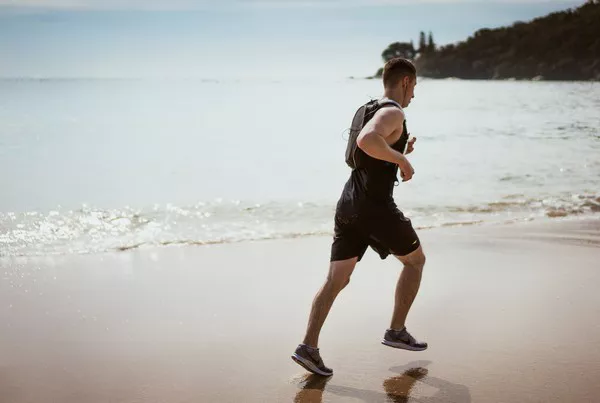Losing weight can be a challenging task, especially when you are unable to perform cardio exercises due to injury. Cardio exercises are known to be effective in burning calories and shedding excess weight, but they are not the only way to achieve weight loss. In this article, we will explore some alternative methods that can help you lose weight without cardio due to injury.
Focus on your diet
One of the most effective ways to lose weight without cardio due to injury is to focus on your diet. The food you eat plays a significant role in weight loss, and making changes to your diet can help you shed excess weight. Start by cutting back on processed foods, sugary drinks, and snacks. Instead, focus on eating whole foods such as fruits, vegetables, lean proteins, and whole grains. These foods are high in nutrients and low in calories, making them an excellent choice for weight loss.
When you are trying to lose weight without cardio due to injury, it is important to pay attention to the quality of your food. Focus on nutrient-dense foods that provide your body with the vitamins, minerals, and other nutrients it needs to function properly. Avoid processed foods that are high in calories, unhealthy fats, and added sugars. These foods can contribute to weight gain and make it harder to lose weight.
Increase your protein intake
Protein is an essential nutrient that plays a crucial role in weight loss. It helps to reduce appetite, boost metabolism, and preserve muscle mass. When you are unable to perform cardio exercises due to injury, it is important to maintain your muscle mass to prevent weight gain. Increasing your protein intake can help you achieve this. Include protein-rich foods such as lean meats, fish, eggs, beans, and nuts in your diet.
When you increase your protein intake, it is important to choose lean sources of protein that are low in saturated fats. This will help you maintain a healthy weight and reduce your risk of developing chronic diseases such as heart disease and diabetes. Aim to include protein in every meal and snack to help you feel full and satisfied.
Incorporate strength training
Strength training is an excellent alternative to cardio exercises when you are unable to perform them due to injury. It helps to build muscle mass, boost metabolism, and burn calories. Incorporate strength training exercises such as weightlifting, resistance band workouts, and bodyweight exercises into your routine. Start with light weights and gradually increase the intensity as your strength improves.
Strength training can help you build lean muscle mass, which can help you burn more calories throughout the day. This can help you lose weight without cardio due to injury. When you are incorporating strength training into your routine, it is important to focus on proper form and technique to prevent injury. Consider working with a certified personal trainer to help you develop a safe and effective strength training program.
Try low-impact exercises
Low-impact exercises are gentle on the joints and can be performed without putting too much stress on the body. These exercises are an excellent alternative to cardio exercises when you are recovering from an injury. Examples of low-impact exercises include swimming, cycling, yoga, and Pilates. These exercises can help you burn calories and shed excess weight without putting too much stress on your body.
When you are trying low-impact exercises, it is important to start slowly and gradually increase the intensity as your body adapts. Listen to your body and avoid pushing yourself too hard, especially if you are recovering from an injury. Consider working with a certified fitness instructor or physical therapist to help you develop a safe and effective low-impact exercise program.
Increase your daily activity level
Increasing your daily activity level can help you burn calories and lose weight without cardio due to injury. Simple changes such as taking the stairs instead of the elevator, walking instead of driving, and standing instead of sitting can make a significant difference in your weight loss journey. Aim to get at least 10,000 steps per day and make movement a part of your daily routine.
When you are trying to increase your daily activity level, it is important to find activities that you enjoy. This will help you stay motivated and make it easier to stick to your weight loss goals. Consider joining a walking group, taking dance classes, or trying a new sport to help you stay active and engaged.
Get enough sleep
Getting enough sleep is essential for weight loss. Lack of sleep can disrupt hormones that regulate appetite, leading to increased cravings and overeating. Aim to get at least 7-8 hours of sleep per night and establish a consistent sleep routine. This will help to regulate your hormones, reduce cravings, and promote weight loss.
When you are trying to get enough sleep, it is important to establish a consistent sleep routine. Go to bed and wake up at the same time every day, even on weekends. Avoid caffeine and alcohol before bedtime, and create a relaxing bedtime routine to help you wind down and prepare for sleep.
Stay hydrated
Staying hydrated is essential for weight loss. Drinking enough water can help to reduce appetite, boost metabolism, and flush out toxins from the body. Aim to drink at least 8-10 glasses of water per day and avoid sugary drinks that can contribute to weight gain.
When you are trying to stay hydrated, it is important to drink water throughout the day. Carry a water bottle with you and sip on it regularly to help you stay hydrated. If you find it difficult to drink plain water, try adding a slice of lemon or lime for flavor.
Conclusion
Losing weight without cardio due to injury is possible. By making changes to your diet, incorporating strength training, trying low-impact exercises, increasing your daily activity level, getting enough sleep, and staying hydrated, you can achieve your weight loss goals. Remember to consult with your healthcare provider before starting any new exercise or diet program, especially if you have an injury. With patience, consistency, and dedication, you can achieve your weight loss goals and improve your overall health and wellbeing.
[inline_related_posts title=”You Might Be Interested In” title_align=”left” style=”list” number=”6″ align=”none” ids=”4964,4961,4927″ by=”categories” orderby=”rand” order=”DESC” hide_thumb=”no” thumb_right=”no” views=”no” date=”yes” grid_columns=”2″ post_type=”” tax=””]































